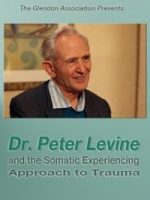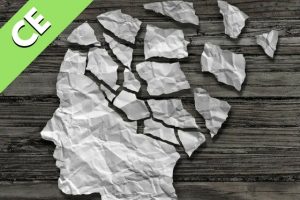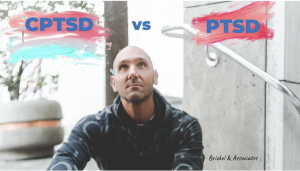It’s Not Your Fault: Overcoming Trauma
 There is a famous scene in the film Good Will Hunting where Robin Williams, playing a therapist, compassionately repeats the line “It’s not your fault” to Will, a troubled young man with self-destructive tendencies, who happens to be a genius. The line is a response to the revelation of abuse Will endured as a child. At first, Will is dismissive of the statement, but as his therapist steadily repeats “It’s not your fault,” he becomes increasingly agitated. Finally, he erupts into emotion, tearfully allowing the meaning of the words to sink in. This scene is a powerful signification of what trauma can do to a human being. It is also a testament to the importance of anyone who has experienced trauma embracing the irrefutable reality that it is not their fault.
There is a famous scene in the film Good Will Hunting where Robin Williams, playing a therapist, compassionately repeats the line “It’s not your fault” to Will, a troubled young man with self-destructive tendencies, who happens to be a genius. The line is a response to the revelation of abuse Will endured as a child. At first, Will is dismissive of the statement, but as his therapist steadily repeats “It’s not your fault,” he becomes increasingly agitated. Finally, he erupts into emotion, tearfully allowing the meaning of the words to sink in. This scene is a powerful signification of what trauma can do to a human being. It is also a testament to the importance of anyone who has experienced trauma embracing the irrefutable reality that it is not their fault.
The character Will may have been a victim of what’s often referred to as “big T trauma,” which can include serious abuse or a life-threatening event. However, a person does not have to have experienced an explicitly existential event to experience trauma. “Little t trauma” comprises events that may not sound as dramatic as that of war, devastation, or extreme violence, but that significantly impact individuals by causing them distress, fear, or pain and, therefore, change the way they see themselves, other people, and the world around them. Too often, people seek excuses to dismiss, bury, or overlook both big and little t trauma. They may tell themselves “it was not that bad,” “others had it worse,” or “remembering won’t do any good anyway.” Or they even say things like, “I deserved it,” “I was a bad/difficult kid,” “or “yes, it was hard at the time, but it made me the strong independent person I am today.” They’re resistant to facing what they endured and what it’s done to them.
Whether we try to bury or ignore it or not, the impact of a person’s trauma remains. The American Psychological Association wrote that “traumatic events challenge an individual’s view of the world as a just, safe and predictable place.” This shake-up to a person’s very worldview changes the course of their life. “The effects of unresolved trauma can be devastating,” wrote Dr. Peter Levine, author of Healing Trauma. “It can affect our habits and outlook on life, leading to addictions and poor decision-making. It can take a toll on our family life and interpersonal relationships. It can trigger real physical pain, symptoms, and disease. And it can lead to a range of self-destructive behaviors.”
The emotional or physical abuse and the pain people have experienced early in life bends them out of shape in many ways, most of which the person is unaware. The mistreatment of an individual within a family is something my father, psychologist and author Robert Firestone, has described as a “human rights violation.” He’s written extensively about the toll interpersonal pain and traumatic childhood conditions can have on a person’s freedom and expression of individuality, including that they lead to the formation of powerful psychological defenses. “No child is born bad or sinful; rather, the psychological defenses that children form early in life are appropriate to actual situations that threaten the emerging self,” wrote Firestone. “These defenses attempt to cope with and minimize painful experiences and emotions suffered in one’s developmental years; however, as noted, the defensive adaptation tends to become increasingly dysfunctional.” People who have experienced trauma may form these defensive adaptations to protect themselves early in life, but these very adaptations can go on to limit them when danger is no longer present.
Young children who’ve experienced trauma tend to internalize much of their pain, blaming themselves for their suffering and struggling with feelings of guilt and shame. This is especially true of trauma experienced at the hands of parents and trusted family members, as young children often find it too threatening to see the faults of their parents fully. When a child is born, trusting their parents is a matter of survival, and seeing their parent as neglectful, uncaring, or even abusive can feel like a threat to that survival. As a result, the child forms defenses to cope with painful circumstances, and they internalize their suffering, seeing it as a reflection of some deficiency in their own personality. They distort their image of themselves to make sense of their maltreatment and believe themselves deserving of the pain they endure. It never fails to surprise me when children as young as 5-years-old reveal their “critical inner voices,” harsh, self-hating attacks that they think about themselves. Where did these ideas come from and how do they influence the child’s formation of their self?
When trauma is absorbed in this way, it can have an even more severe impact on a person’s budding sense of identity. They believe themselves to be “bad” in some way that takes on all sorts of connotations throughout their lives. In addition, people can be subconsciously compelled to recreate their past in the service of upholding this old sense of identity. They may seek out dynamics and relationships that leave them feeling this same terrible way about themselves. That is why one of the most powerful things a person can do to is to acknowledge the negative definitions they’ve taken on as a result of their trauma. A person must accept that these definitions were based on things that were outside their control and have nothing to do with who they really are. In other words, it’s truly not their fault
As adults, any person can make a choice at any given moment about how they want to be. They can challenge old definitions of themselves by identifying them as false and based on circumstances that were not in their control. Part of this means acknowledging that it was NOT their fault that they were hurt, neglected, abused, or projected onto. It was NOT their fault that they came by certain defenses and certain traits. When a person embraces this reality, they can start to separate their true selves and differentiate from the overlays of their past.
Recognizing that you came by your pain honestly and innocently can be freeing and the beginning of healing. “The paradox of trauma is that it has both the power to destroy and the power to transform and resurrect,” said Levine. When someone feels the full pain of their past and is able to make sense of it, they can resolve their trauma and alter their path into the future. They can claim the strength and courage to be themselves, whoever they would be without their defenses and whatever heavy burdens were bestowed on them by their past.
Sociologist Brené Brown wisely wrote, “Of all the things trauma takes away from us, the worst is our willingness, or even our ability, to be vulnerable. There’s a reclaiming that has to happen.” Vulnerability is “about having the courage to show up and be seen,” wrote Brown. Nothing is more vulnerable than being yourself and living your life on your own terms. At the end of Good Will Hunting, you see the main character leave for California to pursue a life and love that reflected who he really was and what he really wanted – a fate that he would have denied himself had he not had a breakthrough about his early trauma. Anyone who’s suffered should be assured that you have the courage, strength, and vulnerability to transform, resurrect, and reclaim yourself. It’s not your fault, but it is your fate.
One Comment
Leave a Reply
You must be logged in to post a comment.










Dear Doctor Firestone,
Is it possible for a man married 50 years in an emotionally abusive wife, once he leaves the marriage, to heal from that trauma and grow from the experience?